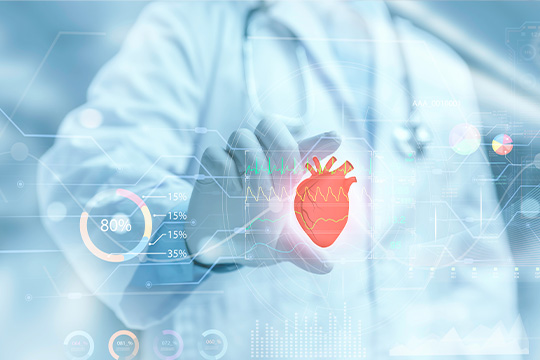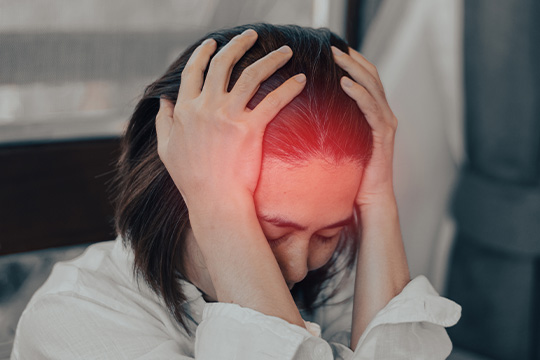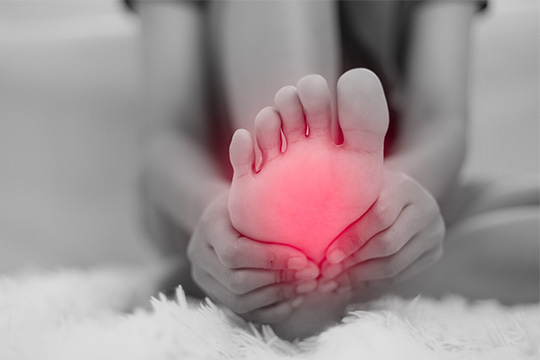Home > Disease and Treatments > Life After a Stroke or Surgery: How Physical Medicine Helps You Walk, Move, and Live Again
Life After a Stroke or Surgery: How Physical Medicine Helps You Walk, Move, and Live Again
A stroke or major surgery can profoundly alter life, often leaving individuals facing significant challenges in movement, daily activities, and independence. Beyond the initial medical treatment, the true journey to recovery lies in rebuilding strength, coordination, and confidence.
This is where Physical Medicine and Rehabilitation (PMR) becomes indispensable. It's not just about healing; it's about empowering you to walk, move, and live fully again. Whether you're navigating the path to walking after a stroke or striving to regain mobility post-surgery, physical rehabilitation is the cornerstone of your journey back to an active, independent life.
Understanding Physical Medicine and Rehabilitation (PMR)
Physical Medicine and Rehabilitation, also known as PMR or physiatry, is a medical specialty focused on restoring movement and improving quality of life for individuals affected by physical limitations. These limitations may result from neurological conditions, injuries, or surgeries.
PMR is commonly recommended after:
- Stroke: To regain motor control, balance, and speech.
- Major Surgeries: Such as joint replacements (e.g., hip, knee, shoulder), cardiac surgeries, or abdominal procedures, to restore mobility and strength.
- Neurological Conditions: Including Parkinson’s disease, multiple sclerosis, or spinal cord injuries (from trauma or disease), to manage symptoms, improve function, and adapt to changes.
- Trauma: From accidents or injuries affecting bones, muscles, ligaments, or the nervous system.
- Chronic Pain: To manage and reduce pain, often through non-surgical methods.
- Cardiac Rehabilitation: Following heart attack, heart surgery (e.g., bypass, valve replacement), or for managing chronic heart conditions, to improve cardiovascular health, strength, and overall well-being.
The Role of Rehabilitation After Stroke or Surgery
Restoring Movement
One of the primary goals of rehabilitation is to help individuals regain movement, whether it’s walking independently, using the upper limbs, or improving coordination and balance. Rehabilitation experts guide patients through exercises that gradually rebuild strength and function.
Regaining Daily Function
After a stroke or major surgery, even routine tasks like dressing, eating, or climbing stairs can be challenging. PMR focuses on helping patients relearn these essential activities so they can return to a more independent life.
Managing Pain and Stiffness
Pain, joint stiffness, and muscle tightness are common following surgery or stroke. Through guided therapies, stretching, and pain-relief techniques, rehabilitation reduces discomfort and improves mobility.
Preventing Further Complications
Without proper rehabilitation, patients can develop complications like muscle wasting, pressure sores, or reduced joint mobility. PMR ensures these risks are minimized and that recovery stays on track.
Supporting Emotional Well-being
Losing mobility can be emotionally overwhelming. Rehabilitation doesn’t just treat the physical body. It also supports mental health, helping patients stay motivated, engaged, and hopeful throughout recovery.
Stroke Recovery: A Closer Look
A stroke can affect movement, speech, memory, and overall coordination. Recovery is different for each individual, but the goal remains the same: to help patients regain as much function as possible.
Rehabilitation after a stroke may include:
- Gait training to improve walking
- Balance and posture exercises
- Arm and hand mobility therapy
- Cognitive and speech therapy
- Swallowing rehabilitation
Early intervention is key. The sooner therapy begins after a stroke, the better the chances of functional recovery.
Post-Surgical Rehabilitation
After procedures such as joint replacements or spinal surgeries, rehabilitation supports long-term recovery by:
- Strengthening muscles around the surgical site
- Enhancing range of motion
- Teaching safe movement and posture
- Supporting return to daily activities and work
Therapists also provide training on how to use assistive devices safely and effectively, when needed.
Team-Based Approach to Recovery
At Royal Care Hospitals, we believe in a holistic, team-based approach to rehabilitation. Each recovery plan is designed by a multidisciplinary team, which may include:
- Rehabilitation physicians (physiatrists)
- Clinical Psychologists, Physiotherapists and occupational therapists
- Speech and language therapists
- Pain management experts
- Psychologists and social workers
This collaborative approach ensures that every aspect of a patient’s recovery — physical, mental, and emotional — is supported with expertise and care.
Small Steps, Big Progress
Recovery from stroke or surgery doesn’t happen overnight. Progress may be gradual, but with the right support, each step leads to meaningful improvement. From taking the first step to regaining full independence, PMR guides patients through every phase of healing.
When to Begin Rehabilitation
The ideal time to start rehabilitation is as early as possible, often within days of a stroke or surgery. Early rehab helps:
- Shorten hospital stay
- Improve functional outcomes
- Prevent long-term disability
- Boost confidence and motivation
Even if time has passed, rehabilitation can still make a significant impact. It’s never too late to regain strength and function.
Begin Your Recovery Journey at Royal Care Hospitals
The Physical Medicine & Rehabilitation (PMR) department at Royal Care Hospitals offers comprehensive rehabilitation services tailored to each patient’s needs. With expert guidance, advanced therapy techniques, and compassionate care, we’re here to help you rebuild life with confidence and mobility.
PMR Scope of Services – Royal Care Hospitals
- Neurological Rehab – Stroke, Brain Injury, Spinal Cord Injury, Parkinson’s, GBS
- Musculoskeletal & Orthopaedic Rehab – Chronic pain, Arthritis, Post-surgical recovery
- Cardiac & Pulmonary Rehab – Heart and lung recovery post-surgery, COPD, Post-COVID
- Critical Care Rehab – ICU, Neuro ICU, Post-critical illness rehabilitation
- Sports Injury Rehab – Muscle strains, Ligament injuries, Performance training
- Pain Management – Interventional (image-guided) pain treatments
- Women’s Health Rehab – Prenatal/Postnatal care, Pelvic floor rehabilitation
- Special Therapies – HBOT, Aquatherapy, rTMS, rPMS, Robotic Rehab, Podiatry
- Psychological & Cognitive Rehab – Counseling, Memory loss, Speech and swallowing therapy
If you or a loved one is recovering from a stroke or surgery, take the first step towards better movement and a fuller life. Our rehabilitation team is ready to support you every step of the way. Contact Royal Care Hospitals today to learn more or schedule a consultation. Your journey to recovery starts here.
Appointments must be made 24 hours in advance.
Book an AppointmentRECENT BLOGS

Cardiovascular disease remains the leading cause of mortality worldwide, accounting for ne...
Read More
Headaches are among the most common ailments people experience, but not all headaches are ...
Read More
Living with diabetes means taking extra care of your health and one of the most important ...
Read More
